Cannabis Testing Services
DRS Testing offers a comprehensive suite of cannabis tests — everything you need for proper certification in New York State.
Select a service from the grid below to jump to more information.
Cannabinoid Potency
Our potency testing services are used by cannabis cultivators, processors, and retailers to ensure that their products meet the required potency standards. Our chemical analysis identifies up to 16 different phytocannabinoid compounds providing a detailed cannabinoid profile that serves as a primary measure of product strength and composition.
With precise potency testing, you can ensure compliance with regulatory standards, optimize product formulations, and deliver consistent and reliable products to meet the diverse requirements of consumers.
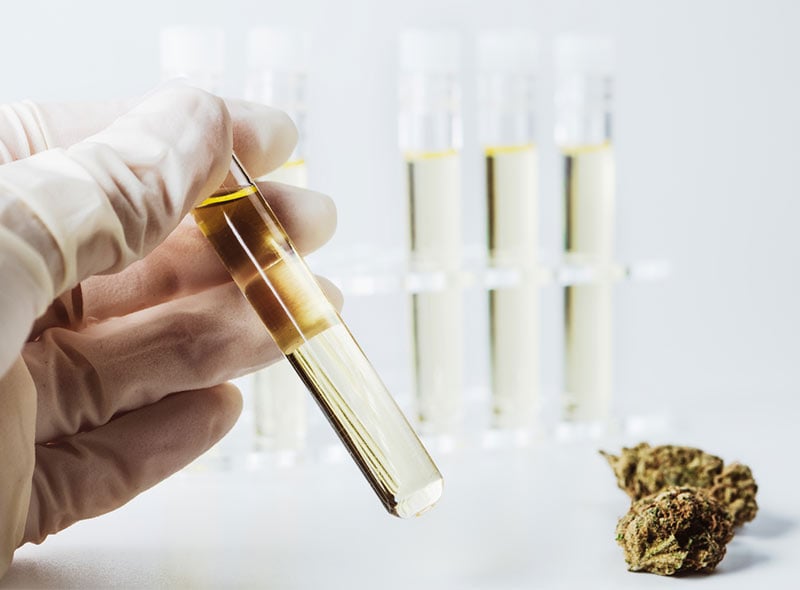
Instruments Used
Samples are analyzed using High-Performance Liquid Chromatography (HPLC).
Product Test/Sample Sizes Needed
- Flower: 2-3 grams
- Concentrate or extract: 3-4 grams
- Infused products: 3-4 grams
- Vape: 3-4 grams
- Drink: 1 can
Scope of Cannabinoid Testing
THCA, Δ9-THC, Δ8-THC, (6aR,9S)-Δ10-THC, (6aR,9R)-Δ10-THC, THCV, THCVA, CBD, CBDA, CBDV, CBDVA, CBGA, CBG, CBC, CBCA, and CBN.
Terpene Profile
Terpenes are the naturally occurring aromatic compounds in cannabis responsible for the unique scent and flavor of cannabis flower. Terpenes are believed to have a synergistic effect with cannabinoids, binding themselves to receptors in the brain.
The terpene analysis process identifies and quantifies the different terpenes present in cannabis. Different combinations of terpenes yield different tastes and aromas. This analysis can be used by consumers to understand the effects of different cannabis strains and to choose products that are suited to their individual needs and preferences.
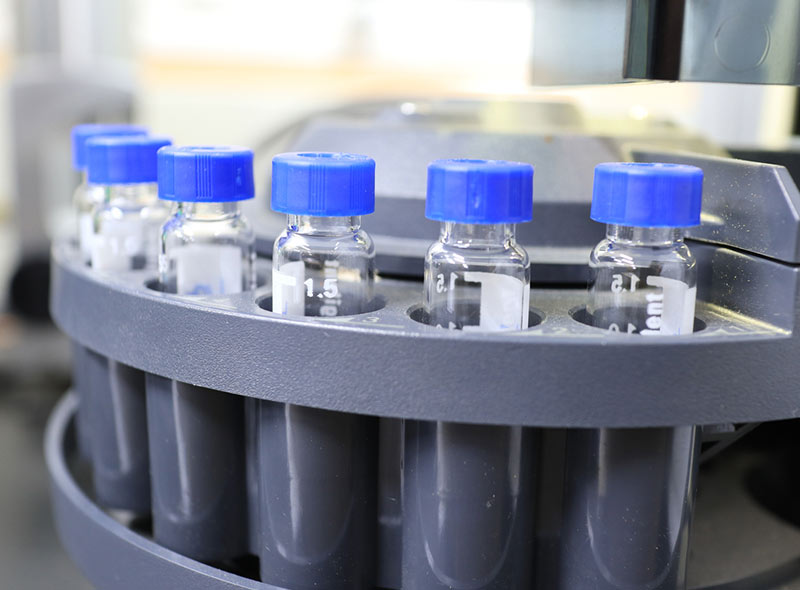
Instruments Used
Samples are analyzed using Headspace Gas Chromatography Mass Spectrometry.
Product Test/Sample Sizes Needed
- Flower: 2-3 grams
- Concentrate or extract: 2-3 grams
- Vape: 2-3 grams
- Infused products: 2-3 grams
Pesticides
Pesticides commonly used in cannabis cultivation are potentially dangerous and pose great health risks. Understanding what is being ingested, whether the product is inhaled or consumed, is paramount in maintaining a safe and effective product Pesticide analysis is the process of identifying and quantifying the different pesticides present in cannabis. This information can be used to ensure that cannabis products are safe for human consumption.
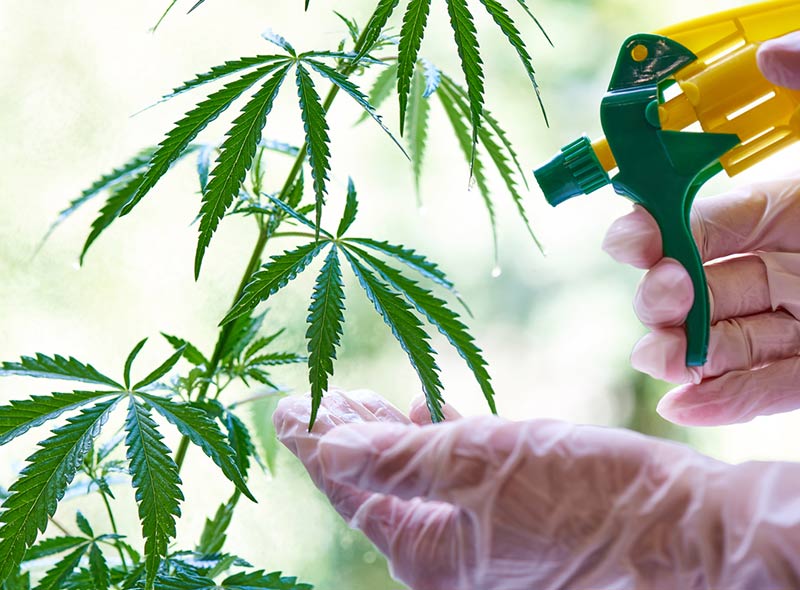
Instruments Used
Samples are analyzed using High Performance Liquid Chromatography Tandem Mass Spectrometry (LCMS) and Triple Quadrupole Gas chromatography-mass spectrometry (GCMS-QQQ)
Product Test/Sample Sizes Needed
- Flower: 2-3 grams
Scope of Pesticide Testing
- Abamectin
- Acephate
- Acequinocyl
- Acetamiprid
- Aldicarb
- Azadirachtin
- Revision
- Azoxystrobin
- Bifenazate
- Bifenthrin
- Boscalid
- Captan
- Carbaryl
- Carbofuran
- Chlorantraniliprole
- Chlordane
- Chlorfenapyr
- Chlormequat chloride
- Chlorpyrifos
- Clofentezine
- Coumaphos
- Cyfluthrin
- Cypermethrin
- Daminozide
- Diazinon
- Dichlorvos (DDVP)
- Dimethoate
- Dimethomorph
- Ethoprop(hos)
- Etofenprox
- Etoxazole
- Fenhexamid
- Fenoxycarb
- Fenpyroximate
- Fipronil
- Flonicamid
- Fludioxonil
- Hexythiazox
- Imazalil
- Imidacloprid
- Indole-3-butyric acid
- Kresoxim -methyl
- Malathion
- Metalaxyl
- Methiocarb
- Methomyl
- Methyl parathion
- Mevinphos
- MGK-264
- Myclobutanil
- Naled
- Oxamyl
- Paclobutrazol
- Pentachloronitrobenzene
- Permethrins, Total
- Phosmet
- Piperonyl butoxide
- Prallethrin
- Propiconazole
- Propoxur
- Pyrethrins2
- Pyridaben
- Spinetoram, Total
- Spinosad, Total
- Spiromesifen
- Spirotetramat
- Spiroxamine
- Tebuconazole
- Thiacloprid
- Thiamethoxam
- Trifloxystrobin
Microbial
Microbial testing for cannabis products is a crucial quality control measure used to assess the safety and purity of the products. Cannabis is susceptible to fungi and bacterial diseases as its growing conditions are often ideal environments for microbial growth. Microbial testing involves the analysis of samples to identify and quantify microorganisms, such as bacteria, fungi, and molds, that may be present in the cannabis plant or its derivatives.
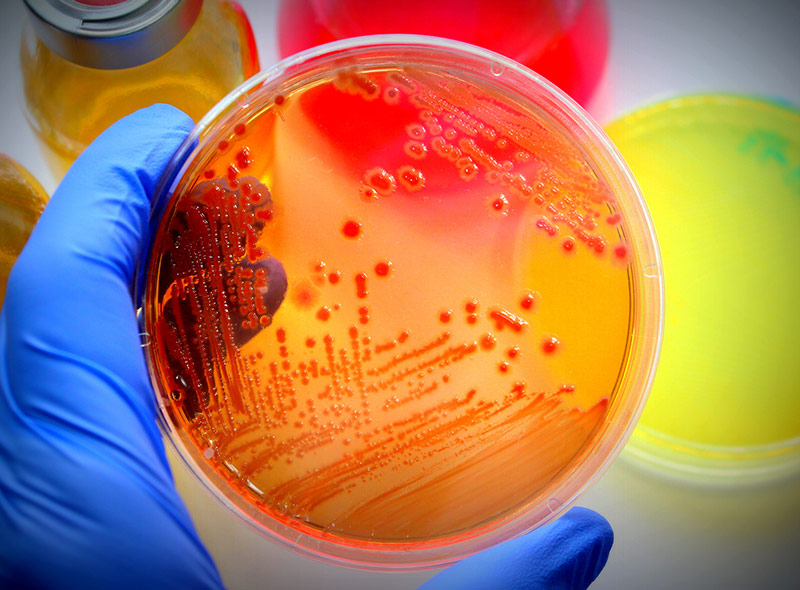
Instruments Used
Samples are analyzed using qPCR.
Product Test/Sample Sizes Needed (full microbial panel)
- Flower: 5-6 grams
- Concentrate or extract: 5-6 grams
- Infused products: 5-6 grams
Scope of Microbial Testing
- Salmonella species
- Shiga toxin-producing Escherichia coli (O157:H7 plus O26, O111, O103, O121, O45, and O145)
- Aspergillus fumigatus, Aspergillus flavus, Aspergillus niger, Aspergillus terreus
- Total yeast and mold
- Total aerobic bacteria
Heavy Metals
Cannabis plants and cannabis-infused products can be exposed to heavy metals from polluted soil, water, fertilizer, or manufacturing equipment. These hazardous substances can be absorbed and stored in the plants or products, and potentially passed on to patients and consumers. Heavy metal analysis is a critical step in ensuring the safety and quality of cannabis products. By identifying and quantifying heavy metals, you can ensure that your products meet safety standards and provide peace of mind to customers.
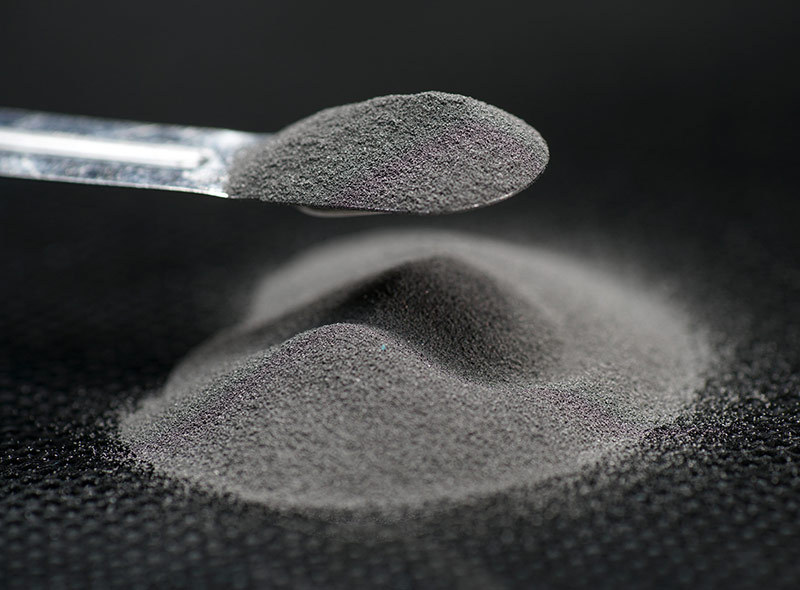
Instruments Used
Sample is analyzed using inductively coupled plasma mass spectrometry (ICP-MS).
Product Test/Sample Sizes Needed
- Flower: 2-3 grams
- Concentrate or extract: 2-3 grams
- Vape: 2-3 grams
Scope of Heavy Metals Test
- Antimony
- Arsenic
- Cadmium
- Chromium
- Copper
- Lead
- Mercury
- Nickel
Residual Solvents
Chemical solvents are utilized to extract the materials needed to manufacture concentrated cannabis products. These solvents must be purged at the end of the extraction process. Residual solvents testing is utilized to detect and quantify any solvent in a cannabis extract that may be left over from the extraction process. Residual solvents, such as butane or ethanol can be harmful to human health if they are not removed completely. Testing for residual solvents is important to ensure that cannabis products are safe for consumption.
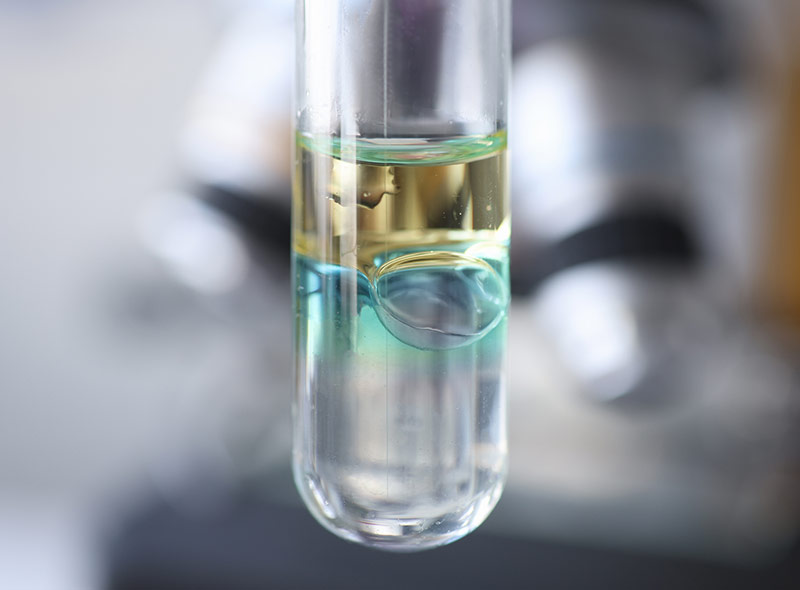
Instruments Used
Samples are analyzed using Headspace Gas Chromatography with Flame Ionization Detection (HS-GC-FID).
Product Test/Sample Sizes Needed
- Concentrate or extract: 2-3 grams
Scope of Test
- 1,2-Dichloroethane (Ethylene dichloride, Ethylene chloride)
- 2-Propanol (Isopropanol, Isopropyl alcohol)
- Acetone (2-Propanone)
- Acetonitrile
- Butanes, Total
- Benzene
- Chloroform
- Dichloromethane (Methylene chloride)
- Dimethyl sulfoxide (DMSO)
- Ethanol (Ethyl alcohol)
- Ethyl acetate (Acetic acid ethyl ester) 1
- Ethyl ether (Diethyl ether, 1,1’-Oxybisethane)
- Heptane (n-Heptane)
- Hexanes, Total
- Methanol (Methyl alcohol)
- Pentanes, Total
- Propane
- Toluene (Methylbenzene)
- Trichloroethane (1,1,1-)
- Xylenes, Total (ortho-, meta-, para-)
Mycotoxins
Mycotoxins are toxic substances produced by certain types of molds, such as Aspergillus and Penicillium, which can contaminate cannabis plants during growth, storage, or processing. These toxins pose a significant health risk if consumed or inhaled by humans.
Mycotoxins testing identifies and quantifies the presence of these harmful substances in cannabis products to ensure they meet NY safety standards.
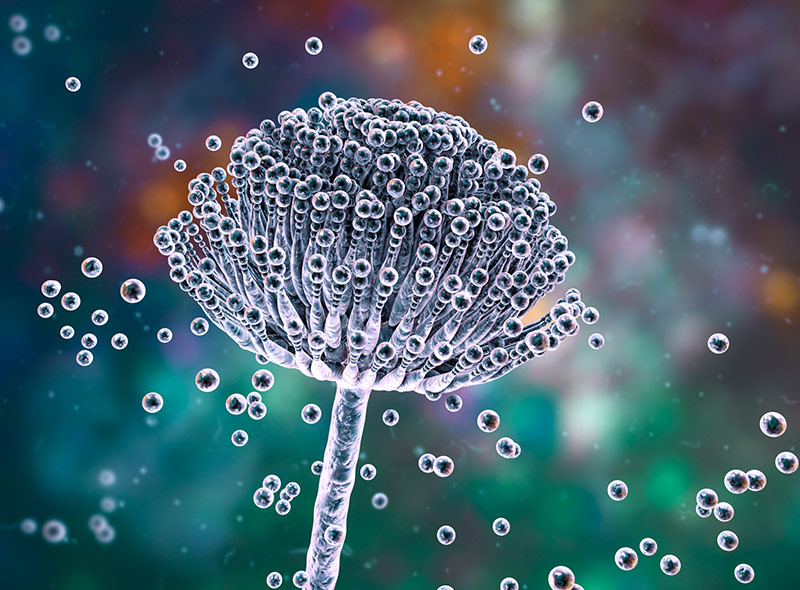
Instruments Used
Samples are analyzed using Liquid Chromatography Tandem Mass Spectroscopy (LC-MS/MS).
Product Test/Sample Sizes Needed
- Flower: 2-3 grams
- Concentrate or extract: 2-3 grams
- Infused products: 2-3 grams
Scope of Mycotoxin Testing
- Total Aflatoxins - (Sum of Aflatoxin B1, Aflatoxin B2, Aflatoxin G1, and Aflatoxin G2, if determined individually)
- Ochratoxin A
Foreign Matter
Foreign matter testing is a quality control measure used to ensure that cannabis products are free of any foreign materials, such as insects, dirt, hair, or other contaminants. Foreign matter can be introduced into cannabis products at any stage of the growing, harvesting, processing, or packaging process.
This analysis is a microscopic inspection of cannabis and cannabis products for foreign materials.
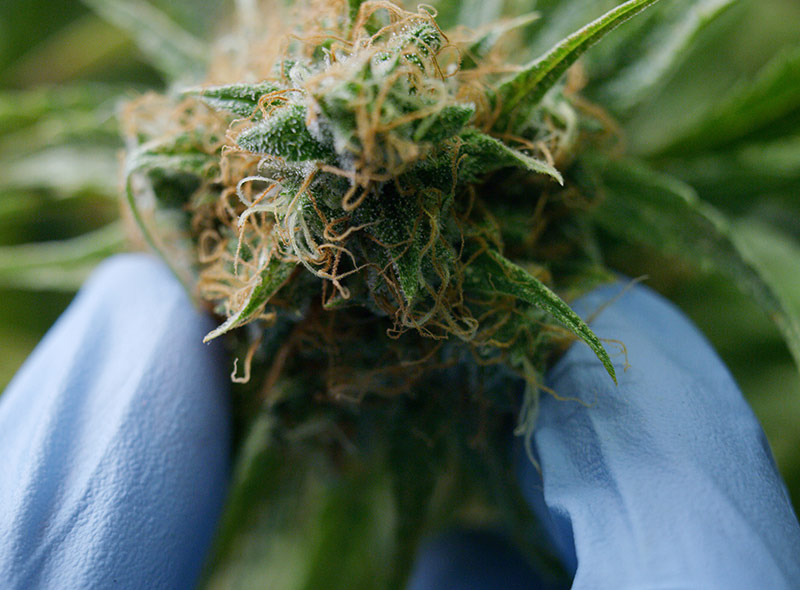
Instruments Used
Samples are analyzed using a microscope with camera capabilities.
Product Test/Sample Sizes Needed
Moisture Content
The moisture content is the percentage, by weight, that is water in cannabis products. Moisture content is crucial as an indicator of the potential activity of microbiological contaminants such as bacteria and mold. Testing the moisture content of cannabis products can help determine the effectiveness of the curing process.
Moisture content testing is important in cannabis because moisture content can affect the quality, safety, and shelf life of the product.
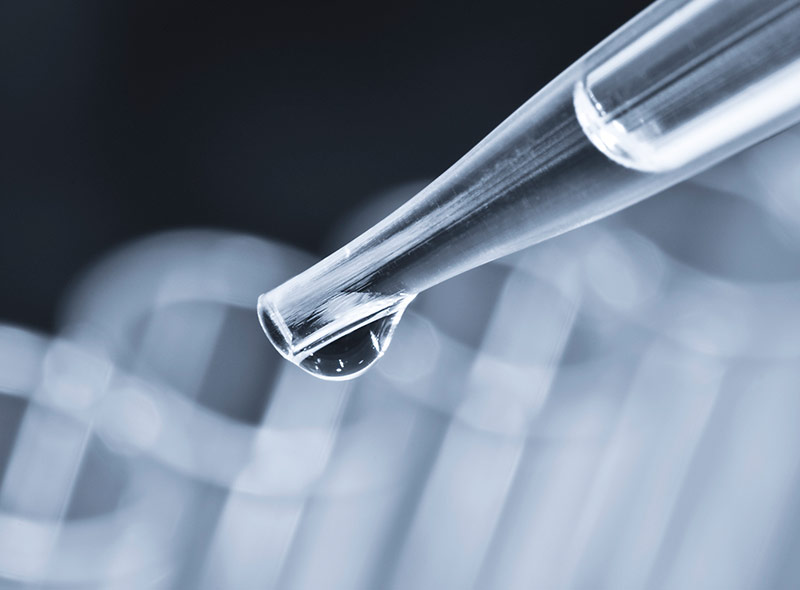
Instruments Used
Samples are analyzed using a loss on drying moisture analyzer.
Product Test/Sample Sizes Needed
- Flower: 1-2 grams
Water Activity
Water activity is a measure of how much water is not chemically bound to a cannabis product. A product’s water activity determines its ability to grow mold or fungus. Microbial growth, including mold and bacteria, is more likely to occur in products with a high water activity.
By measuring the water activity in a cannabis product, it provides an excellent way to analyze how susceptible the product is to microbial contamination.
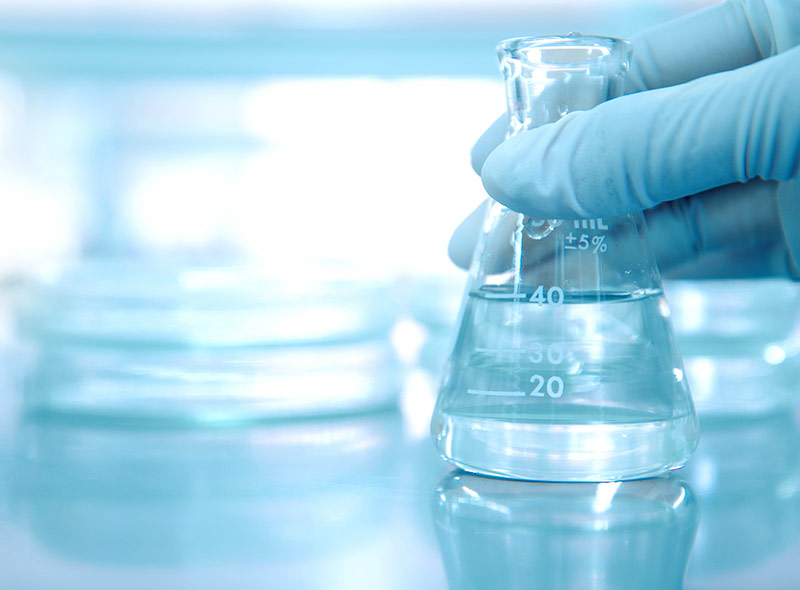
Instruments Used
Samples are analyzed using a water activity meter.
Product Test/Sample Sizes Needed
- Flower: 1-2 grams
- Infused products: 1-2 grams
Dedicated to providing you with an exceptional testing experience
Get the support you need to achieve New York State compliance and reach your business goals. Contact us today to learn more about our wide range of testing options and see why DRS is the best choice for all your cannabis testing needs.
